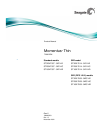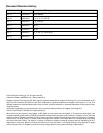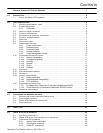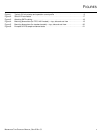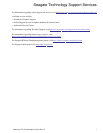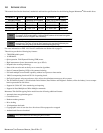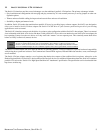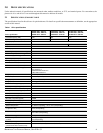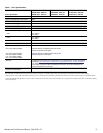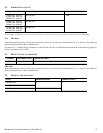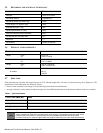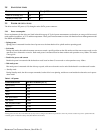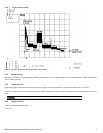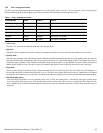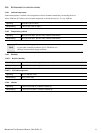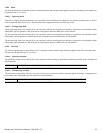
MOMENTUS THIN PRODUCT MANUAL, GEN-2 REV. G 2
1.0 INTRODUCTION
This manual describes the functional, mechanical and interface specifications for the following Seagate Momentus
®
Thin model drives:
For more information on FIPS 140-2 Level 2 certification see Section 4.0 on page 21.
These drives provide the following key features:
• 7200-RPM spindle speed.
• 16-MB buffer.
• Quiet operation. Fluid Dynamic Bearing (FDB) motor.
• High instantaneous (burst) data-transfer rates (up to 3Gb/s).
• Perpendicular recording technology.
• State-of-the-art cache and on-the-fly error-correction algorithms.
• Native Command Queuing (NCQ) with command ordering.
• Full-track multiple-sector transfer capability without local processor intervention.
• 1000 Gs nonoperating shock and 350 Gs of operating shock.
• SeaTools diagnostic software performs a drive self-test that eliminates unnecessary drive returns.
• The 3D Defense System™, which includes Drive Defense, Data Defense and Diagnostic Defense, offers the industry’s most compre-
hensive protection for disk drives.
• Support for S.M.A.R.T. drive monitoring and reporting.
• Support for Read Multiple and Write Multiple commands.
Momentus Thin Self-Encrypting Drive models have the following additional features:
• Automatic data encryption/decryption
• Controlled access
• Random number generator
• Drive locking
• 16 independent data bands
• Cryptographic erase of user data for a drive that will be repurposed or scrapped
• Authenticated firmware download
ST MODEL #PART # ST MODEL #PART # ST MODEL #PART #
Standard models Standard SED models SED (FIPS 140-2) models
ST320LT007 9ZV142 ST320LT014 9YK142 ST320LT009 9WC142
ST250LT007 9ZV14C ST250LT014 9YK14C ST250LT009 9WC14C
ST160LT007 9ZV14D ST160LT014 9YK14D ST160LT009 9WC14D
NOTE
Previous generations of Seagate Self-Encrypting Drive models were called Full Disk
Encryption (FDE) models before a differentiation between drive-based encryption
and other forms of encryption was necessary.
NOTE
The Self-Encrypting Drive models indicated on the cover of this product manual have
provisions for “Security of Data at Rest” based on the standards defined by the
Trusted Computing Group (see www.trustedcomputinggroup.org).
NOTE
There is no significant performance difference between Self-Encrypting
Drive and standard (non-Self-Encrypting Drive) models.



